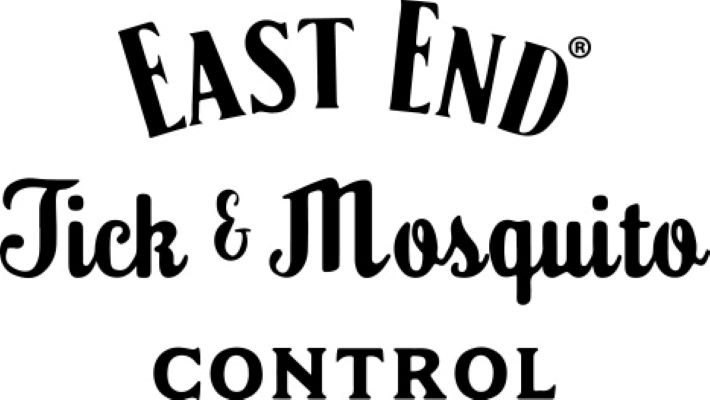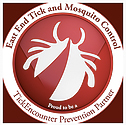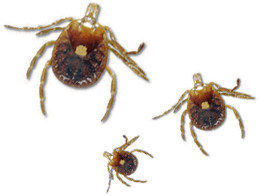 The dangers of tick bites are well known to East End residents. If a tick bites you, you’re wise to be concerned about contracting a tick-borne illness. But does it matter what kind of tick has bitten you? A tick is a tick, and they’re all bad, right? Actually, no. While most ticks carry pathogens, different types of ticks cause various illnesses, and some are far more dangerous to humans than others. It’s important to know what kind of tick has bitten you so you can understand what health consequences you may experience and what symptoms to look for.
The dangers of tick bites are well known to East End residents. If a tick bites you, you’re wise to be concerned about contracting a tick-borne illness. But does it matter what kind of tick has bitten you? A tick is a tick, and they’re all bad, right? Actually, no. While most ticks carry pathogens, different types of ticks cause various illnesses, and some are far more dangerous to humans than others. It’s important to know what kind of tick has bitten you so you can understand what health consequences you may experience and what symptoms to look for.
[Continue Reading]
Can Perfume Repel Mosquitoes?
 Do mosquitoes frequently bite you? Does it seem like mosquitoes go after you more when you wear perfume? Or other types of fragrance, like scented lotion? Do you imagine it, or does your perfume attract them? Let’s take a look so you can be appropriately prepared for spring and summer outdoor events.
Do mosquitoes frequently bite you? Does it seem like mosquitoes go after you more when you wear perfume? Or other types of fragrance, like scented lotion? Do you imagine it, or does your perfume attract them? Let’s take a look so you can be appropriately prepared for spring and summer outdoor events.
[Continue Reading]
Five Tips for Keeping Your Kids Safe This Tick Season
 Few insects inspire fear like ticks. Partially because they look a bit like tiny spiders, but even more because we know they latch on to us, suck our blood, and potentially leave behind a host of different tick-borne diseases; just the thought of a tick can make your skin crawl.
Few insects inspire fear like ticks. Partially because they look a bit like tiny spiders, but even more because we know they latch on to us, suck our blood, and potentially leave behind a host of different tick-borne diseases; just the thought of a tick can make your skin crawl.
For most people, the obvious answer is to avoid them. But when you are a parent, especially a parent with children who enjoy playing outdoors, there is an ever-present threat of one of the little monsters attacking your little monster.
So how do you keep your kids safe from ticks? As with most insect bite prevention, the key is planning.
- First, when your children go outside, know where they will be and evaluate the risk. While your backyard might not seem like a haven for ticks, you might be mistaken. The first step in keeping kids safe is ensuring your yard is not hospitable to ticks.The Centers for Disease Control suggests frequently mowing, keeping leaves raked and wood neatly stacked in a sunny, dry place. They also say to keep swings, monkey bars, and other play equipment in bright areas, not under a shade tree. Remember that play equipment in the sun can get hot and cause burns.
- The next step in preventing ticks on your child is to clothe them appropriately. It’s time to forgo favorite colors that are dark and allow bugs to hide. Instead, opt for light-colored clothing and closed-toe shoes. Wearing a hat is always a good idea when under trees and staying out of high weeds.
- The third step to keeping your children safe during tick season is learning to perform a good tick check and safely remove a tick found on your child.Every time your child comes in from the outdoors, it’s a good idea to do a quick visual inspection to look for ticks.
Not sure how to check for ticks on a child? This YouTube tutorial can help. The key is to inspect their hairline and all the crevices an insect might be able to hide in. Often ticks are found on the scalp or in the armpits, but the mother in the video found a tick in her son’s belly button.
One way to help prevent a tick from latching onto your child is to have them take a bath or shower as soon as they enter. This also helps get rid of any allergens they pick up while outside.
- What to do ff I find a tick on my child? That’s where the fourth step comes in: don’t panic.Yes, ticks in New York can carry disease, but getting rid of the tick as quickly as possible is essential. Remove the tick from your child, and then worry about the consequences.
Grab a pair of tweezers and a plastic bag. Grasp the tick as close to the head as possible and pull it directly away from the skin. Put the tick in the plastic bag, rinse the wound with soap and water or an antiseptic and then call your pediatrician’s office for advice. Some doctors may want to see the tick to determine the chances of it making your child sick and recommend any follow-up treatment.
- The fifth step in preventing ticks on your children this summer should be your first step. Call East End Tick Control and talk to us about tick prevention treatment for your property. You’ll still want to be careful and use insect repellent, but you’ll sleep a lot easier if you know you’ve done all you can to keep ticks out of your yard and off your kids.
Prevent Ticks by Calling East End Tick Control
Although Lyme disease is highly treatable, prevention is the best cure. Professional tick mitigation is one of the most effective ways to avoid these pests on your property. Since 1997, East End Tick and Mosquito Control® have been Suffolk County’s most trusted tick control company. For 25 years, we use the most effective extermination methods to protect yourself and your family. Request a free estimate now or call our Southampton office at (631) 287-9700, our East Hampton office at (631) 324-9700, or our Southold office at (631) 765-9700.
Are Mosquito Control Services Safe and Effective?
 Not many decades ago, it was commonplace for children to chase the mosquito control truck, running in the street and frolicking in its spray. Those days are long gone, and even though mosquito control products have become safer over the years, we’re all more careful about what we may be breathing in or letting touch our skin.
Not many decades ago, it was commonplace for children to chase the mosquito control truck, running in the street and frolicking in its spray. Those days are long gone, and even though mosquito control products have become safer over the years, we’re all more careful about what we may be breathing in or letting touch our skin.
Mosquito spraying and residential mosquito treatments are critically important for protecting ourselves, our families, and our communities from mosquito-borne diseases like Eastern Equine Encephalitis, Zika virus, and West Nile virus. But how safe are the products we use? And how effective are they?
Is Mosquito Spraying Safe For Humans?
Community spraying and home treatments for mosquitoes are regulated by the EPA and deemed safe for humans. Commonly used products have a low toxicity level, and some pest control companies, like East End Tick Control®, go out of their way to ensure the safety of your family, your pets, and the environment.
Still, it is advisable to stay indoors when spraying takes place and to avoid inhaling or having direct contact with any outdoor mosquito treatment. Inhaling large quantities of mosquito products can lead to skin, eye, and throat irritation, nausea, headache, dizziness, and vomiting. Children, the elderly, and those with respiratory issues should avoid direct exposure. Fortunately, the ingredients in these products break down in the body, and these rare symptoms typically resolve quickly with no lasting buildup.
After spraying or yard treatment, remain indoors or avoid the area for about 30 minutes; the spray will have settled by that time. As with any pest control treatment, these precautions also apply to your pets. Bring them inside during spraying, and keep them away from sprayed areas for at least a half-hour.
How Effective Is Mosquito Spraying?
Spraying is an essential component of mosquito abatement. To understand the effectiveness of spraying and other treatments, it’s critical to know what they do and don’t accomplish.
Both community spraying and home treatments kill the mosquitoes they touch. These treatments then settle and leave a residue that repels other mosquitoes that would otherwise populate the area. Spray-based treatments are most effective at killing mosquitoes at dawn and dusk when they are most active.
A treatment will temporarily reduce the number of mosquitoes in the area, but it is not a permanent solution. The battle against mosquitoes is an ongoing one, and treatments need to be reapplied on a regular schedule throughout the mosquito season. Some other things you can do to provide a less hospitable environment for mosquitoes are:
- Clear any standing water from your property,
- Keep your yard free of debris that might attract mosquitoes,
- Add mosquito-repelling plants to your landscape,
- Avoid letting mosquito-harboring thatch build up on your lawn,
- Use yellow outdoor LED lighting instead of white light.
How Long Does It Take For Mosquito Treatments To Work?
Both public spraying and home treatments work quickly. Mosquitos should decrease dramatically within 24 hours. Adulticide treatments kill flying mosquitoes immediately and will repel other mosquitoes for at least several weeks. Larvicide treatments kill larvae that hatch from eggs. Larvicides work within 24-48 hours and can last several months or more, depending upon the product and method of application.
East End Tick Control® Eliminates Mosquitoes
Residential treatments are an integral component of overall mosquito abatement. By keeping your yard mosquito-free, you can help prevent the spread of diseases like EEE, Zika virus, and West Nile virus. At East End Tick and Mosquito Control®, we are proud to say that all of our options are family and pet safe. For those residents living near Southampton, please call (631) 287-9700. If you live closer to East Hampton, please call (631) 324-9700. If you reside near Southold, please call (631) 765-9700. You can always email us as well. We look forward to hearing from you.
When Is the Best Time To Begin Mosquito Control Services?
 It seems to happen overnight. The days get longer, temperatures rise, flowers burst into bloom, and then you hear the whining drone of a mosquito moments before you become its latest meal. You may not be expecting or prepared for them, but mosquitoes are predictable pests, always returning when conditions are ripe for their arrival.
It seems to happen overnight. The days get longer, temperatures rise, flowers burst into bloom, and then you hear the whining drone of a mosquito moments before you become its latest meal. You may not be expecting or prepared for them, but mosquitoes are predictable pests, always returning when conditions are ripe for their arrival.
What Time Of Year Should You Start Mosquito Spraying?
To know when mosquitoes will return (and when to spray for them), it’s essential to understand their life cycle and how they respond to temperatures and the changing seasons.
Mosquitos don’t fare well in cool or cold weather. They function most efficiently when temperatures are between 70 to 80 degrees Fahrenheit, become lethargic at 60 degrees F, and cannot function at temperatures below 50 degrees Fahrenheit. In New York, mosquito season lasts from April through October, but climate change will likely extend the season even longer in the coming years.
There are two main species of mosquitoes in this region, and both become problematic around the same time. The common house mosquito, culex pipiens, emerges from hibernation when temperatures consistently reach 50 degrees Fahrenheit. The Asian tiger mosquito, aedes albopictus, often doesn’t survive winter temperatures. Still, the eggs they lay in late fall hatch at roughly the same point on the thermometer when their culex cousins emerge.
The best time of year to start spraying for mosquitoes is right before the season begins. It is more efficient to attack emerging and larval mosquitoes than trying to get rid of fully developed, fully functioning adult mosquitoes. If you miss this window, the fight will be a bit more complicated, but homeowners cannot ignore the battle.
When Is The Best Time Of Day To Spray For Mosquitoes?
The best time to spray for mosquitoes is when they are most active. Spraying is most effective when they feed, at dusk and dawn. This isn’t always practical, though, especially if you engage the services of a professional mosquito control company. They will visit your property during daytime hours, considering the differential between the time of treatment and peak mosquito activity.
Should I Mow Before A Mosquito Spraying?
Mow your grass a day or two before having your yard sprayed. This will discourage crucial pollinators like bees and butterflies from being in your yard and protect them from anti-mosquito treatments. Shorter grass provides less cover for mosquitoes and other unwanted pests, so it’s sensible to keep it trimmed regularly anyway.
Should I Wait Until After It Rains To Spray For Mosquitoes?
Mosquito sprays and foggers target flying insects, so rain does not necessarily affect spray treatments. Other mosquito treatments are usually oil-based and water-insoluble, so they will not wash away in the rain. It is wise to give these some time to bond to surfaces and foliage before exposing them to rain, lawn sprinklers, or other water sources. Your mosquito control professional will provide detailed instructions on how long you should wait before allowing a specific treatment to get wet.
We Are Your Mosquito Control Expert
One of the best things you can do to defend your family, pets, and property from this pest is getting a mosquito yard spray treatment from East End Tick and Mosquito Control®. If you wish to schedule a preventative yard spray, give our experts a call today. We have been Eastern Suffolk’s most trusted name in tick and mosquito control for 25 years. If you live near Southampton, please call (631) 287-9700. If you are closer to East Hampton, please call (631) 324-9700. And if you reside near Southold, please call (631) 765-9700. You can always email us as well. We look forward to hearing from you!
5 Common Misconceptions About Lyme Disease
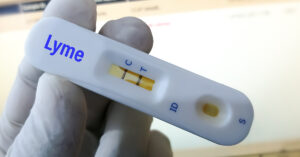 First identified in rural Connecticut in 1975, Lyme disease has been the subject of conjecture and controversy for nearly half a century. Because many of its symptoms mimic other diseases, and research on its long-term effects is still ongoing, Lyme disease has many myths and misconceptions.
First identified in rural Connecticut in 1975, Lyme disease has been the subject of conjecture and controversy for nearly half a century. Because many of its symptoms mimic other diseases, and research on its long-term effects is still ongoing, Lyme disease has many myths and misconceptions.
[Continue Reading]
A Brief History of Lyme Disease
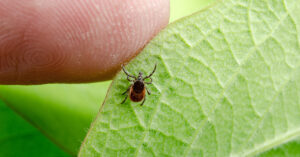 Sometimes, we believe that just because we weren’t aware of something previously, it must be new. Many people feel that way about Lyme disease.
Sometimes, we believe that just because we weren’t aware of something previously, it must be new. Many people feel that way about Lyme disease.
They believe that because the tick-borne disease has been well-publicized in the last few decades, that must be when it started. Unfortunately, that’s not true.
Unlike the SARS virus and various flu viruses that mutate and expand their ability to infect people, Lyme disease is not caused by a virus but a bacterium that hasn’t changed much in the last 60,000 years.
[Continue Reading]
All About the Tick-Borne Encephalitis Vaccine
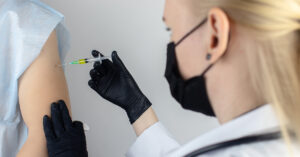 In 2021, the United States approved the use of a vaccine called TICOVAC or TicoVac for tick-borne encephalitis (TBE). People in Europe have been using this vaccine effectively for more than 20 years.
In 2021, the United States approved the use of a vaccine called TICOVAC or TicoVac for tick-borne encephalitis (TBE). People in Europe have been using this vaccine effectively for more than 20 years.
[Continue Reading]
The CDC and Its Tick Surveillance and Collection
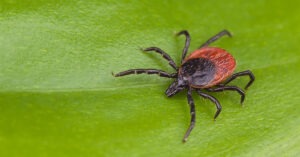 While you are taking steps to protect yourself, your family, and your pets from ticks, the Centers for Disease Control (CDC) and other state and local agencies are gathering data to help inform and protect the public. Those agencies ensure facts are accurate to drive public policy decisions regarding these disease-transmitting pests.
While you are taking steps to protect yourself, your family, and your pets from ticks, the Centers for Disease Control (CDC) and other state and local agencies are gathering data to help inform and protect the public. Those agencies ensure facts are accurate to drive public policy decisions regarding these disease-transmitting pests.
What Is Tick Surveillance?
Tick surveillance is the scientific collection of ticks and tick-related environmental samples. Its goal is to identify all tick species in a specific area and test for tick-borne pathogens. Entomologists document, collect, and study the ticks and samples, and then they report the data to health agencies for analysis.
How Is Tick Surveillance Used?
Tick surveillance data monitors the presence and number of ticks in a specific area and follows how this information changes over time. It also documents infection levels in disease-carrying tick species.
Public health agencies use this information to make strategic decisions about tick control programs and resource allocation. Additionally, the data is used to communicate to the public the likelihood of encounters with pathogen-carrying ticks in the area of interest.
Tick surveillance programs do not monitor or report https://www.health.ny.gov/diseases/communicable/lyme/tick-borne disease in human or veterinary patients; that data is gathered separately through state and local health departments. Personal identifiers are then removed, and information is shared with the CDC through the National Notifiable Diseases Surveillance System (NNDSS).
Why Is Tick Surveillance Important?
It is critical to know where ticks are active to properly assess the risk of tick-borne diseases in humans and animals. Some illnesses, including Lyme disease, anaplasmosis, ehrlichiosis, babesiosis, and Rocky Mountain spotted fever, can be debilitating or fatal to humans.
How Accurate Is Tick Surveillance?
Like any scientific enterprise, the information resulting from tick surveillance experiences a lag between data collection and publication, and promulgation. Tick populations are constantly shifting and changing, so it is wise for residents of areas where ticks may be present to be vigilant.
Call East End Tick Control for Peace of Mind Protection
Call East End Tick Control® if you see ticks or suspect their presence on your property or home, call East End Tick Control®. We are Eastern Suffolk County’s most-experienced tick control company, providing the Twin Forks and East End with the most effective pest control treatments since 1997. Protect your family from disease-carrying ticks year-round by requesting a free estimate now or by calling our Southampton office at (631) 287-9700, our East Hampton office at (631) 324-9700, or our Southold office at (631) 765-9700.
Were Mosquitoes Around in Prehistoric Times?
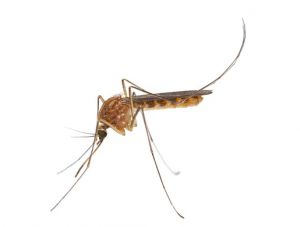
Mosquito isolated on white background
Mosquitos have been a pest for a long time – but how long? With the sixth and newest Jurassic Park film, Jurassic World: Dominion, set to arrive in theaters this spring, it’s a good time to look at how old mosquitos are.
As most of you are probably aware, in the films, scientists were able to get dinosaur DNA from blood samples found in the stomachs of prehistoric mosquitos that had been trapped in amber. Is that just a fanciful idea for a science fiction movie, or are mosquitoes so old that they could have bitten dinosaurs?
What Is the Oldest Mosquito?
First of all, did mosquitos exist simultaneously the giant sauropods of antiquity? According to Dr. Ralph Harbach of the Natural History Museum in London, it’s entirely possible.
“Since some of today’s mosquitoes also feed on reptiles, could the more ancient mosquitoes have sucked from a dinosaur?” Dr. Harbach said: “it’s possible. Evidence suggests mosquitoes evolved in the Jurassic Period (200-146 million years ago). If the early ancestral mosquitoes had already evolved to feed on blood, it is conceivable that they may have fed on dinosaurs.”
How Does a Mosquito Get into Amber?
Amber is fossilized tree sap, and tree sap is often sweet-smelling. The most common theory is that mosquitoes would land on a tree branch attracted by the smell and get trapped. Over the centuries, the amber would fossilize, preserving the insect. It is a comparatively typical process, and many types of prehistoric insects have been found preserved this way.
Were There Giant Mosquitoes in Prehistoric Times?
There were giant insects deep in Earth’s past, a side effect of much higher oxygen levels in the atmosphere allowing them to reach sizes that sometimes approached several feet, just like something in a movie. These titans of the insect world attained their largest sizes approximately 300 million years ago, But, as Dr. Harbach pointed out, mosquitos evolved around 200 million years ago.
While it is entertaining to contemplate, there were no genuinely giant mosquitoes back then or in the intervening years. The mosquito’s primary size and shape have hardly changed over the years since prehistoric times.
Did Mosquitoes Evolve from Flies?
No, mosquitos did not evolve from flies; technically, they are flies. Mosquitoes are members of almost 3,600 species of small flies that are part of the family Culicidae (from the Latin culex meaning “gnat”).
East End Tick Control® Eliminates Mosquitoes
If these age-old pests plague your Long Island home, contact us. We can eliminate them and ensure that they do not return. We are proud to note that all of our options are family and pet safe. For those living near Southampton, please call (631) 287-9700 . If you are closer to East Hampton, please call (631) 324-9700. If you reside near Southold, please call (631) 765-9700. You can always email us as well. We look forward to hearing from you!
- « Previous Page
- 1
- …
- 4
- 5
- 6
- 7
- 8
- …
- 11
- Next Page »
